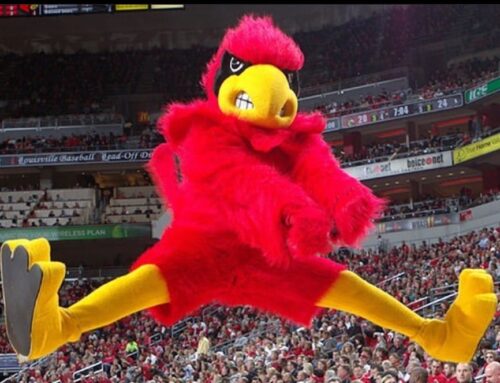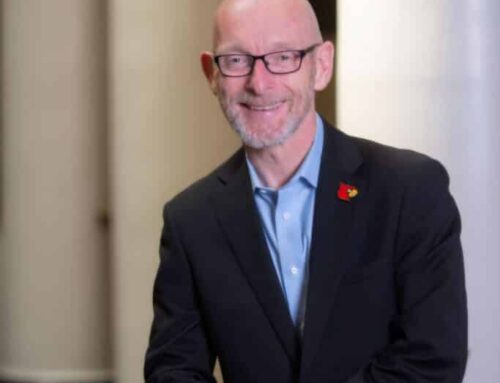By Baylee Pullium–
On Sept. 1, The Louisville Cardinal editorial board sat down with the University of Louisville’s President James Ramsey.
In between shooting the breeze about our favorite Beatles – Ramsey’s is Ringo – and discussing the finer points of smart phones and Facebook, Ramsey answered questions about campus politics and some of the more significant summer happenings at U of L.
Tuition increase: In June, tuition increased by six percent, for a total of about $8,400 for in-state students. Tuition rose eight percent for medical and dental students. Ramsey said the Council on Postsecondary Education gave university a range for how much they could raise tuition. U of L and the University of Kentucky, because of their research university status, were given a maximum of six percent.
He said they chose the maximum increase to compensate for budget cuts.
Kentucky’s public universities “have all been given state mandates to do better, to do more, to graduate more students, but we’ve all [had our budgets] cut,” Ramsey said.
He said the money has gone to help students by bringing better technology, services, academic support and more opportunities for student engagement. He said the university’s lack of funds has deferred other improvement plans.
“In order to get where we want to be for our long-term strategic plan, we need to hire 400 new faculty, but we haven’t been able to do that,” Ramsey said.
Ramsey said he has no doubt tuition will continue to go up, but “by how much is anybody’s guess.”
The increases are tied to economic inflation, he said, but admitted the rate is much higher. According to the U.S. Bureau of Labor Statistics, the all items Consumer Price Index inflated 3.6 percent in the past 12 months- 1.4 percent less than the rate of increase for U of L tuition.
The hospital merger: The potential merger of University Hospital and Catholic Health Initiatives, which owns St. Mary’s Health Care and Jewish Hospital, was announced over the summer.
The merger is not yet official. Ramsey said one of the confusions of media coverage of the merger is the notion that the University of Louisville controls University Hospital, which he said it doesn’t.
“It’s a separate 501C3,” Ramsey said. “It’s not owned by the University of Louisville. It’s not controlled by the University of Louisville.”
University Hospital, he said, is partially used by the university as a training ground for U of L medical
students.
Ramsey said “nothing will change from the academic perspective” in the process of earning a degree for medical students.
Ramsey said the merger would also help U of L reach its goal of becoming a premier metropolitan research university, set in 1997.
Ramsey said the university has “really invested in medicine, our School of Medicine and our downtown campus” to meet that goal.
The first of the two main causes for merger discussion, Ramsey said, is “to provide healthcare. We
as a state are not very healthy… we’ve got to do a better job as a
state at addressing health issues.”
The second, he said, is financial.
“The university has been through 11 budget cuts – state budget cuts – in 11 years,” Ramsey said.
“One of our strategies is to increase our clinical income to support our academic pursuits.”
The recreation center: In April, the Board of Trustees voted to approve the building of a 28,000-square-foot student recreation facility, which would house basketball courts, a jogging track, weight rooms, a fitness lab and a multipurpose room.
In order to pay for the facility, the university instituted a $98-per-semester fee, starting with this year’s freshmen.
“In full disclosure to them, they know when they come that that’s part of the cost,” Ramsey said.
The recreation center would be positioned near University of Louisville Properties and isn’t slated to open until fall of 2013. Ramsey said construction probably won’t start until December 2011. Ramsey said there have been problems with building on the university-owned lot because the site is currently parking for many resident students and faculty.
“The issue is where are we going to put all of these cars?” Ramsey said.
The university has been looking at purchasing another nearby property to compensate, including a lot near the Family Scholar House. The lot, he said, used to be owned by Chevron and is now polluted, complicating any attempt
at purchase.
“We haven’t been able to reach an agreement with Chevron yet, but since it’s polluted we won’t be able to build a residence hall… so we’ll build a parking lot,” Ramsey said.
Photo: Laura Adkins/The Louisville Cardinal




